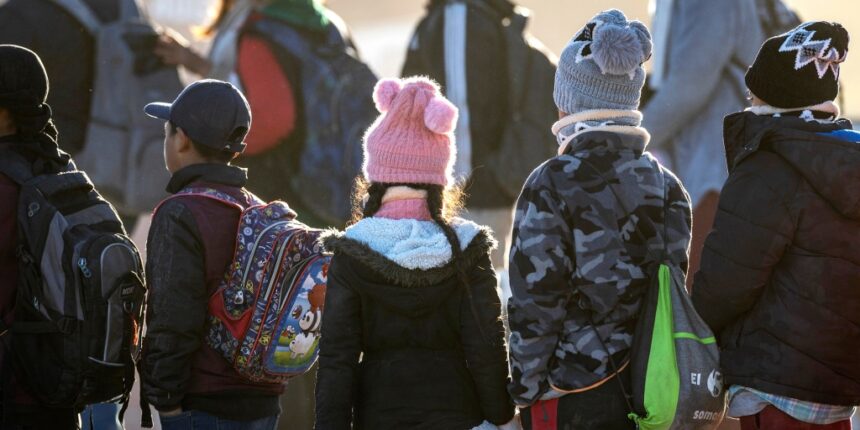The United States government is rolling out a program that would ensure the payment of a $2,500 incentive for migrant teens who voluntarily return to their home countries.
It was gathered that the incentive for migrant teens will be targeted at unaccompanied minors aged 14 and older in federal custody.
The initiative was contained in a leaked memo purportedly from the Department of Health and Human Services (HHS).
According to the leaked memo, the incentive for migrant teens is aimed at encouraging self-deportations while providing reintegration support for those who opt to leave.
The program offers a one-time “resettlement support stipend” of $2,500 to eligible teens who elect voluntary departure, with the funds disbursed only after an immigration judge approves the request and the individual successfully returns to their home country. This financial incentive builds on earlier efforts, such as a $1,000 stipend offered to adult migrants in Ma.
The leaked memo was said to have been sent on Friday afternoon to legal service providers around the country that represent unaccompanied migrant children.
“This benefit is intended to support reintegration efforts following departures,” the leaked memo reads in part.
Speaking on the development, an Immigration and Customs Enforcement (ICE) official who didn’t want his name in print said: “This programme is strictly voluntary and allows minors to make an informed decision about their future.”
However, the new incentive for migrant teens has already drawn criticism from immigrant rights advocates, who warn that paying children to leave could violate protections for vulnerable youths under U.S. immigration law.
“There is no legitimate reason for the government to incentivise voluntary departure with a financial payoff,” said Neha Desai of the National Center for Youth Law, describing the policy as “a troubling precedent.”
Wendy Young with Kids in Need of Defense also stated in a statement that: “Unaccompanied children should never be removed from the United States without a full and fair process to determine if they are eligible for U.S. protection.”
“This operation undermines laws that guarantee that process for unaccompanied children, and it runs counter to our nation’s longstanding commitment to protect the most vulnerable among us — children — from violence, trafficking, abuse, persecution, and other grave dangers.”
Advocates further argue that the payments could pressure minors into returning to unsafe or unstable environments, potentially undermining the humanitarian principles guiding the care of unaccompanied migrant children.
Roxana Cortés-Mills, who runs the Center for Immigrant and Refugee Advancement in Nebraska, said regardless of the offer, the rumors about it had sown fear among immigrant communities. She said a rural school district in the state called her office asking, “Should we tell parents to pull their kids from school?” She added, “This is the first time in my nine years of working with unaccompanied children that I am hearing this type of offer.”
Vanessa Dojaquez-Torres, practice and policy counsel with the American Immigration Lawyers Association, said: “We are seeing a lot of patterns and receiving a lot of reports that ICE is using a lot of pressure tactics to encourage people to take deportation. It’s bad enough to use these tactics on adults to encourage them to self-deport but it’s a whole new level of concern to try to use it with children.”
Pan-Atlantic Kompass reports that the offer from the administration of United States President Donald Trump comes amid an overall push to get undocumented immigrants to self-deport, offering adults and their families $1,000 to leave the country under a separate program.
It was gathered that more than 300,000 children entered the U.S. by themselves during the Biden administration before being released to parents, relatives, or nonfamily sponsors across the country.
As of August, the federal government had 2,011 unaccompanied minor children in its custody, according to the HHS website.
Typically, children who cross the border without a legal parent or guardian are transferred temporarily to HHS custody until they can be matched with a U.S.-based sponsor. Children who immigrate to the United States without parents have special protections under the Trafficking Victims Protection Reauthorization Act, unless they are from Mexico or Canada.
The Trump administration has sought to thwart those special protections and recently attempted to deport Guatemalan children who were still in the process of seeking asylum.





